There’s no halfway to sportsmanship
Published on July 10th, 2018
The Inland Lake Yachting Association (ILYA) launched the #FAIRSAILING Initiative for the 2018 season in an effort to emphasize sportsmanship on the water. The focus has been on improving rule knowledge, which has resulted in the development of online videos and a rules quiz.
The leadership exhibited in this effort is remarkable, and it is due to committed people like Candace Porter, past ILYA commodore and current editor of the ILYA publication Scowlines, who shares her thoughts here:
As the ILYA began this endeavor, I recalled the effort of Bill Bentsen in the massive simplification of the Racing Rules of Sailing back in the late 1990s. (This became known as the Experimental Right-of-Way Rules.) Representing US Sailing, Bill came to the ILYA as one of the larger Yacht Racing Associations in the country with then six classes of boats. He asked us to test the proposed rules.
This began as a major overhaul of sailing rules as we knew it. But there we were, the ILYA, learning the rules. I will list their objectives below as they are applicable to us as ILYA sailors as we travel our own path with the execution of the rules with this #FAIRSAILING endeavor.
As a member of the ILYA Board and then Commodore, I had the privilege of listening to Bill and Dick Rose. We ultimately invited Dick Rose out to our Winter Inland to speak. It was then I realized the importance of a set of rules that are not devised by local lakes or classes of boats but by internationally knowledgeable people who care to have consistency and fairness in our sport.
To sit in my formative years at the knee of Rose (who probably doesn’t even remember he spoke at that One Design Symposium) and to reside in a region with a resource such as Bentsen, shaped who I would become as an ILYA leader.
I am again re-invigorated with pride in who we are in the ILYA and how much we prize our skill and fair play but also with awe for these two men who really shaped the Racing Rules of Sailing. Now the younger crowd turns to Dave Dellenbaugh and Dave Perry who carry the baton in such an impassioned manner but also in a modern presentation format which makes you long for more.
And here we are today with a program that intends to help the ILYA build our clubs. We all see new residents moving on our lakes, intrigued by this sport of ours and wondering how to quickly get up to speed. Our simple, straightforward video presentation gets you there in a way we have not utilized before.
We all struggle with differing skills of sailors on our race courses. We want the course to be fair for those at the top, fun for those who may never be that champion – we all want a fair playing field and what better way to achieve that than learning the basics to keep the local racing safe, competitive and consistent.
We see the competitive nature of sports today where, perhaps, winning at all costs is tempting. That’s not who we are – not by our natural Midwest upbringing, not in the sport we chose. But how do our children move from the “win” philosophy seen in today’s sports to fair sailing 100% of the time? There is no such thing as halfway.
We have always espoused a level of fairness here at home, heralded our heroes and told their tales of sportsmanship. We know what is important and celebrate the victories of the spirit and of character with higher regard than anything else. So this ILYA initiative encourages all that -sportsmanship, ethical play, inviting experiences which can be safe with a consistent playing field. It’s a rejuvenation of sorts. And an important one.
As Bill Bentsen noted in the January 1997 edition of Sailing World (with generous support from UK Sailmakers):
————–
But first, a bit of history. The rules we have been using until now were originally conceived by Harold Vanderbilt. They have been modified in a piecemeal fashion after each of the last 10 Olympics. With each revision, the rules gradually became a bit longer, a bit more poorly organized. …ISAF challenged its Racing Rules Committee to write a much simpler set of rules by 1997. They were even willing to consider some changes in the “game” if that was needed to achieve simplicity.
The rules are designed to:
• Embody principles of fairness acceptable to most sailors,
• Discourage contact,
• Permit close maneuvering with a minimum of anxiety,
• Encourage sailing fast and discourage impeding others,
• Minimize exceptions and rules for unusual situations, and
• Use simple, familiar language.
————–
So we in the ILYA are tapping into those words. We want to embody those principles of fairness above all. We want to welcome new sailors to our clubs and fleets by discouraging contact and sailing with a minimum of anxiety. Could there be anything faster than our flat-bottomed scows?
And we want our youth and elders to understand by a clear, simple and familiar method of presentation. So why this project? This is us, standing at the lead but, mostly, following where we have been led by men like Bill Bentsen.
Now, open that rulebook and look at the small number of pages that address how we sail on the water, pages 11-15. And those five pages determine the fun you have sailing with your fellow competitors and often friends. Is it ever too late or too often that we need to remind ourselves where we come from in our sailing and what shapes our style of racing?
If you happen to see Bill Bentsen this summer, thank him and thank him sincerely because he has shaped what you do on the water today. Or send him a note for his efforts some twenty years ago which we are teaching today. His vision along with truly a small group of the most dedicated, cerebral and precise men have given us guidelines that will last for many years to help us remain safe, consistent and sportsmanlike in this joy we pursue.


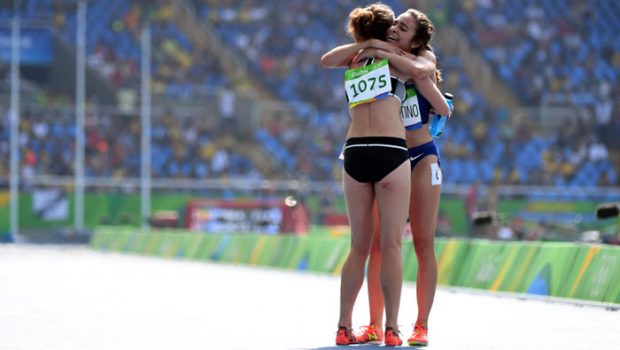


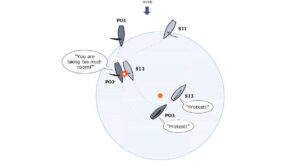
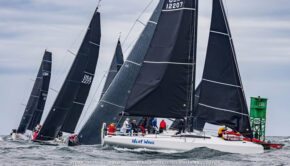
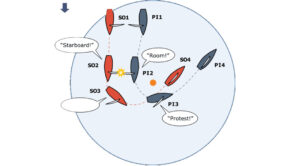
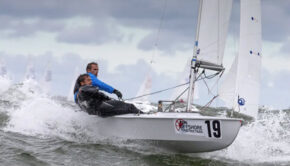
 We’ll keep your information safe.
We’ll keep your information safe.